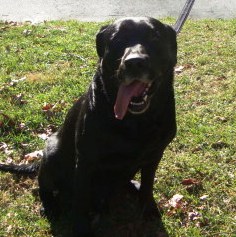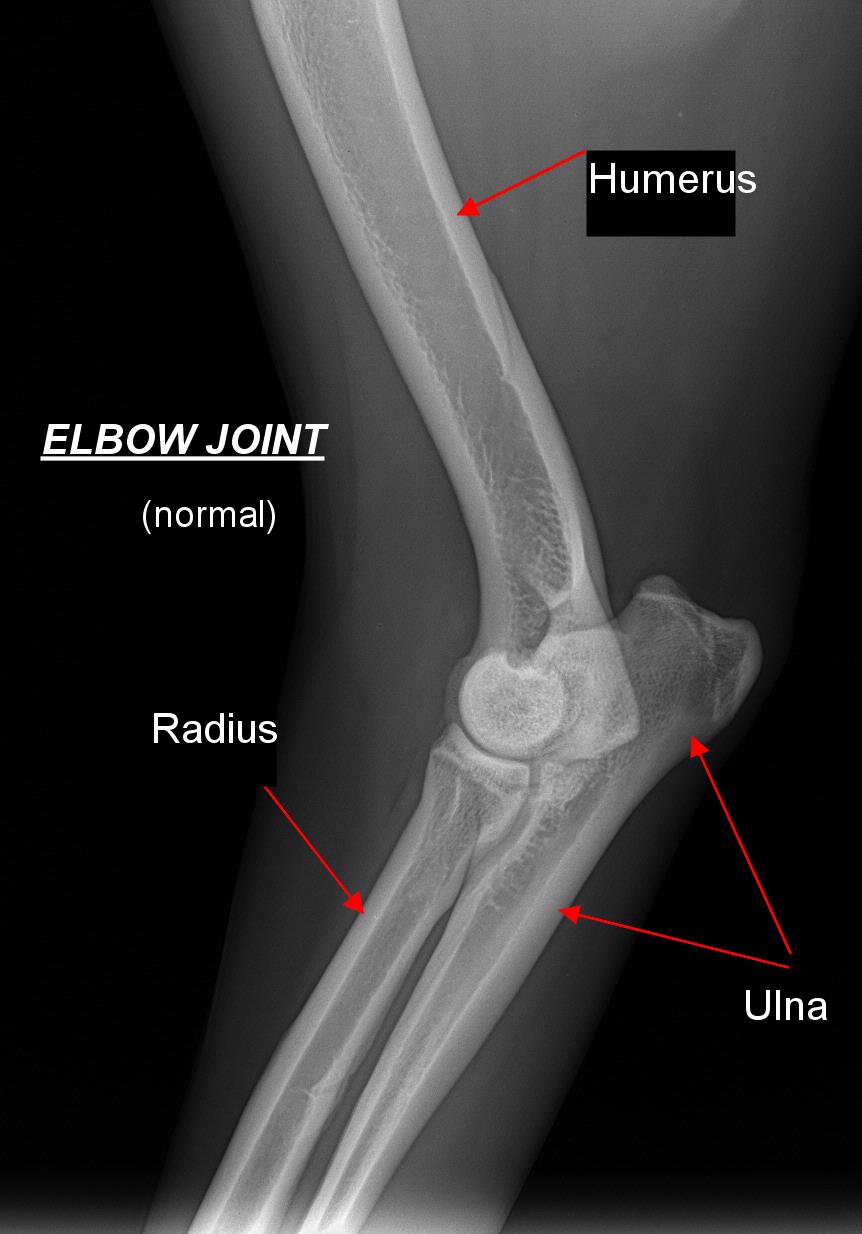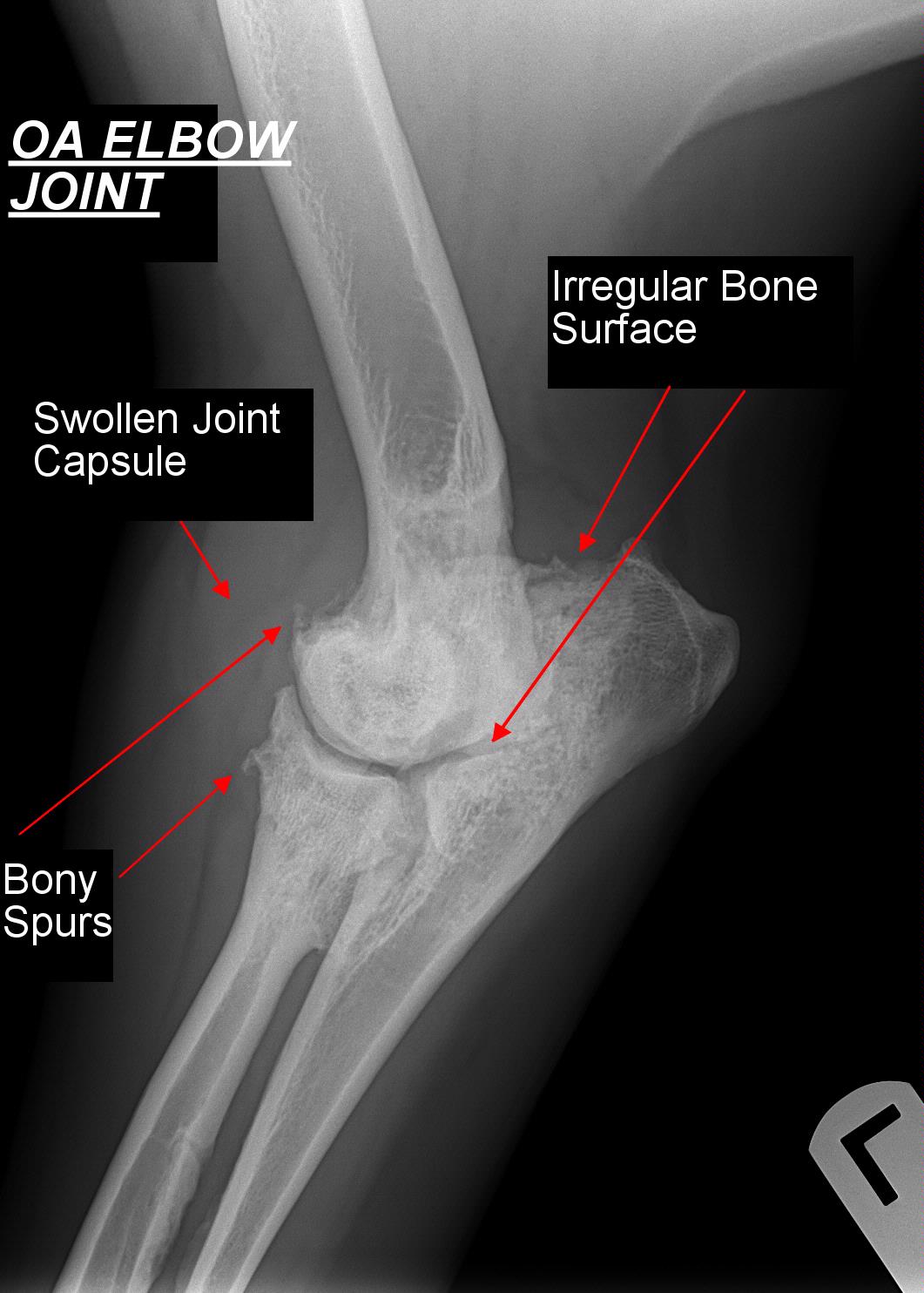Arthritis in Dogs
 Pictured is Kody, a Black Labrador from Belmar, NJ who has arthritis and is doing well with treatment.
Pictured is Kody, a Black Labrador from Belmar, NJ who has arthritis and is doing well with treatment.
What is arthritis?
When we discuss osteo-arthritis (OA) in dogs we usually think about the leg bones and joints-like elbows, shoulders, knees and hips. The ends of bones in joints are covered with a nice smooth layer of cartilage, that is bathed in a lubricating joint fluid which is surrounded by a joint capsule preventing any leakage. The bone/cartilage ends mesh and align perfectly. When the dog walks or runs and the joint moves and bends, the bones/cartilage slide past each other in a smooth, low friction gliding motion. A disruption to this normal anatomy and function can lead to inflammation occuring in the joint, changes in the joint fluid lubricating properties, and the cartilage eventually can become roughened and pitted thus losing it’s nice smooth surface. Inflammation, cartilage destruction, and pain occur. As the degenerative condition progresses and gradually gets worse, bony changes can occur which can be detected on x-rays.
Causes of arthritis:
The causes of arthritis are very long and varied.
1) Developmental and congenital abnormalities, such as hip dysplasia and elbow dysplasia in large breeds, where the bones don’t perfectly mesh and come together. Luxating patellas in small breed dogs, where the knee cap is very loose.
2) Immune mediated processes, where the immune system goes awry from a whole variety of reasons and affects or attacks the joint cartilage and joint fluid. Rheumatoid arthritis is a classical human example of immune mediated erosive arthritis, but less common in dogs.
3) Infectious diseases, such as Lyme disease and other bacteria that can be transmitted by ticks can cause OA. Other non tick related bacterial infections can affect the joints. Viral, calicivirus in cats.
4) Aging and/or obesity can put extra strain, stress and wear and tear on the joints thus promoting OA.
5) Injuries, such as a ruptured cruciate ligament in the knee.
6) Other factors.
Signs of OA:
Limping, favoring a leg, stiff, sore, slow.
Difficulty or reluctance to stand up. Difficulty or slow with stairs.
Painful, behavior changes.
Diagnostics, radiographs (X-RAYS):
Physical exam and questioning by the veterinarian, gives valuable information. As OA advances bone changes can be seen on radiographs. The elbow joint on the left is a normal elbow. The elbow on the right is a severely arthritic dog elbow, with lots of bony spurs and joint swelling.
Treatment:
Keep your dog fit and trim and in good body condition. Low and medium impact exercise like swimming, short jogs and long walks are good for mobility, muscle strength and joint health. Heavy exercise is excessive and can lead to worsening of OA. Neutraceuticals like glucosamine, chondroitin and fish oils can help maintain cartilage and joint fluid health. As OA progresses Non Steroidal Anti-Inflammatory Drugs (NSAIDS) can be added in, aspirin is not very safe for dogs so veterinary types only must be used. Acupuncture can help with pain and inflammation and keep dogs with OA walking better for a longer time. There are many other meds that can be used, contact your veterinarian for specifics. Sometimes surgery can be done to slow the progression of arthritis, for example arthroscopic surgery for elbow dysplasia. Overall the majority of dogs can lead a relatively normal happy life with OA.
Come check out our cozy office, get aquainted with our knowledgeable staff and schedule your appointment today, please do not hesitate to get in touch! We will make it the best experience possible for you and your four legged friend! Squan Animal Hospital LLC 1427 Lakewood Rd Manasquan, NJ 08736 Phone: 732-528-9199 Fax: 732-528-0769 E-Mail: cs@squananimalhospital.com


